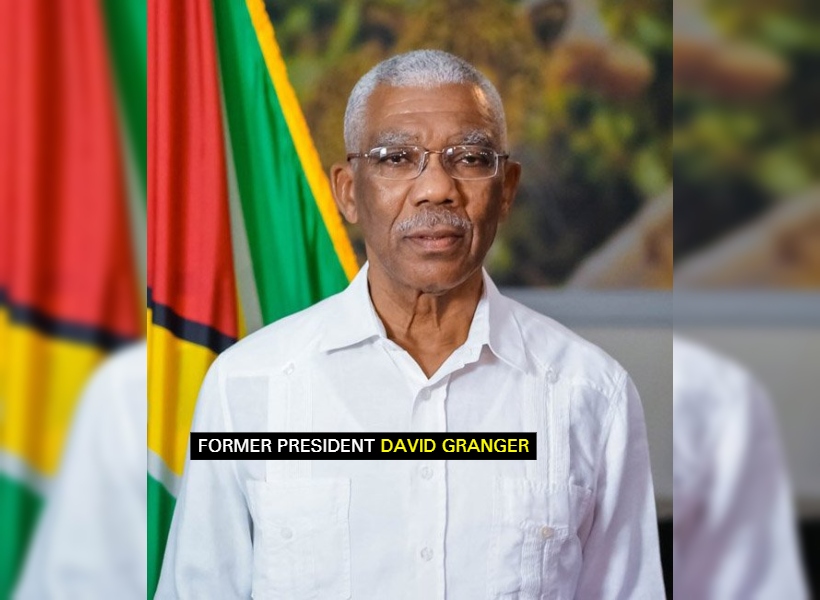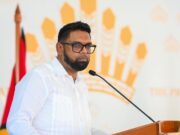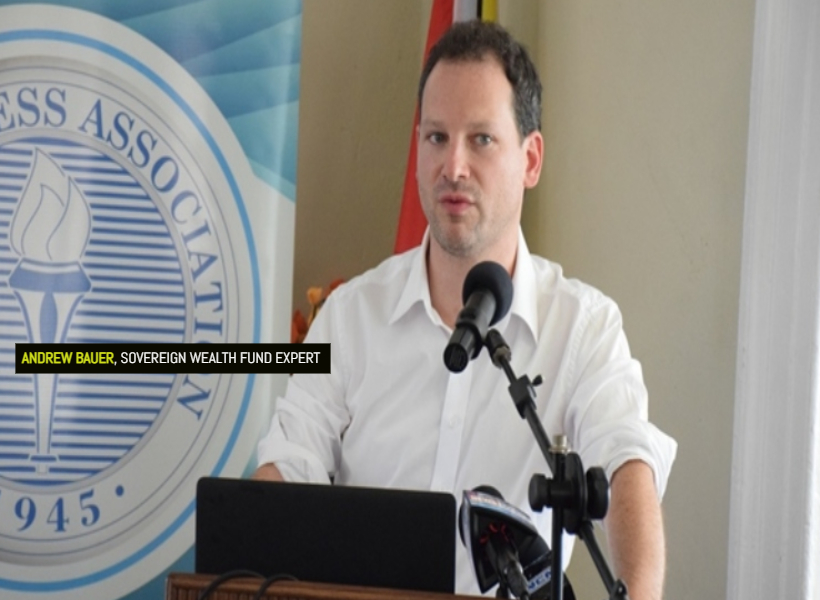In spite of the wave of criticisms the PPP/C Government’s Natural Resource Fund (NRF) Law has faced within these shores, International Expert on Sovereign Wealth Funds, Andrew Bauer, touts it to be a strong and transparent piece of legislation.
During his first appearance on Kaieteur Radio’s Programme, Guyana’s Oil and You, Bauer was asked to say how the new law stacks up against some of the best pieces of SWF legislation he has reviewed during his time. Bauer who has worked with 15 countries on this matter, such as Timor Leste, Ghana, Lebanon, Libya, and Senegal, said Guyana’s law is not only strong but certainly “a very detailed document and transparent legislation.” He said the previous law which was introduced by the former government, the APNU+AFC coalition, also had some strong points in their attempt at it. He noted however that the new law now puts very rigid restrictions on what the money can be invested in.
Bauer said, “It’s very detailed and I would say in some ways, it’s even more detailed than the previous bill in terms of, for example, the investment rules, what the fund is allowed to invest in, what it’s not allowed to invest in, what the constraints are around the amount of risk that the asset managers can take; you know these are really great elements of the law.”
He added, “There’s some parts of the law that I’ve never even seen in any law that are so detailed and innovative that I think will really help Guyana, it will help the fund not invest in some of the crazy derivative instruments or art or commodities or whatever that a lot of the funds around the world (fall victim to) and Guyana’s fund will not be allowed to do that…”
Bauer said therefore that his concern is not centred on the fund falling victim to egregious acts of corruption as seen in other countries as he believes the level of transparency the fund offers as well is another key safeguard.
He is concerned however about the extent of political appointments the law allows.
In this regard, the NRF Expert said the law allows the President to appoint the members of the Board of Directors and the Public Accountability and Oversight Committee. Bauer said international best practices dictate that these appointments are made via the National Assembly or a similar mechanism so that there could be guaranteed confidence in the level of independence granted to those persons to carry out their duties. He said the approach taken by Guyana is “very unusual” as it puts too many “political cooks in the oil kitchen which can cause confusion and create challenges.”
Another concern he listed is that the way the rules are written, very little money would be saved, resulting in the excessive flooding of oil money into the economy. Bauer said the impact this can have given the nation’s absorptive capacity and its systems to ensure there is no wastage is cause for concern. The expert said Guyana needs to be mindful in this regard and avoid finding itself with “expensive hospitals” and other forms of infrastructure or “white elephant projects.”
Despite the foregoing flaws, the expert still deemed the oil law strong and transparent but stressed that the key will be ensuring the money withdrawn, actually leads to prosperity across the board.











